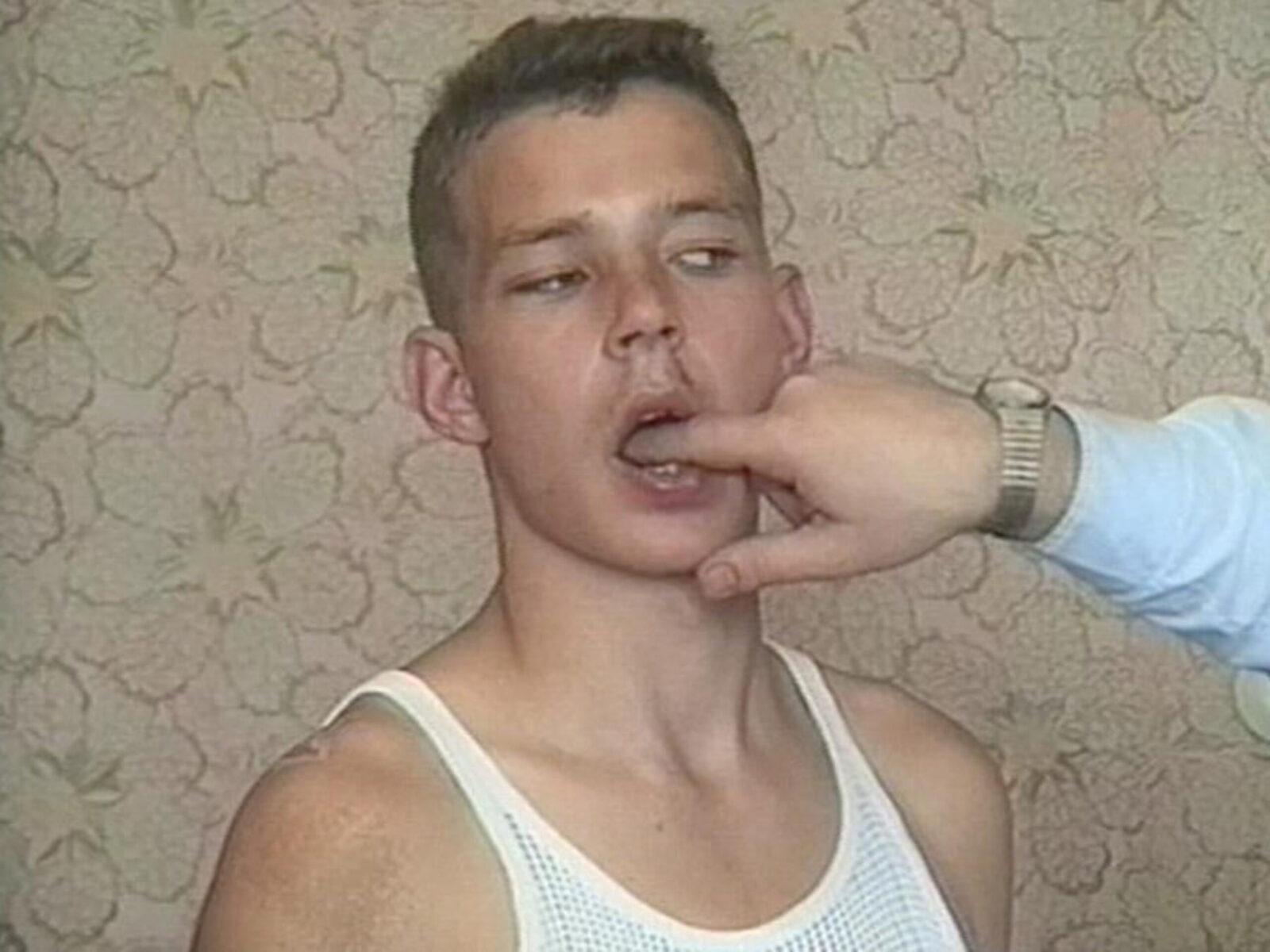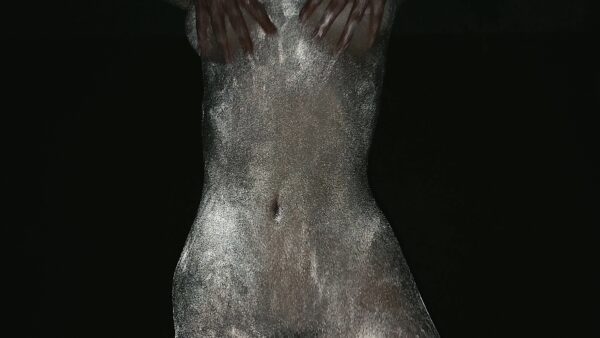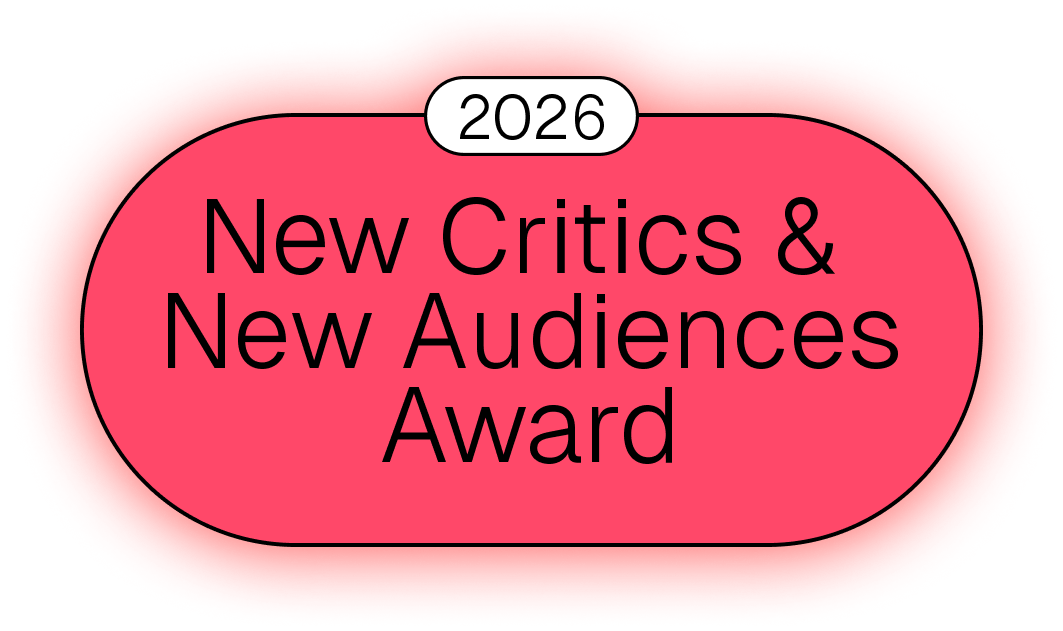The Fall of Innocence
The Fall of Communism as Seen in Gay Pornography
William E. Jones blends archival manipulation and incisive critique on sexual labour into a stimulating piece of video art.

“Even in an unlikely place, it is possible to find traces of recent history,” teases artist filmmaker William E. Jones in voiceover at the beginning of his 1998 film The Fall of Communism as Seen in Gay Pornography, a cerebral investigation of the rising gay porn industry in Eastern European countries following the dissolution of the Soviet Union and its complex relationship with the American consumer market. Accompanying these words is a brief sequence showing a young man stripping and looking obliquely around him—his fluid movements and straight posture clashing with the nervousness of his gaze. Right after, an explanatory card contextualises the materials assembled by Jones: excerpts from pornographic videos produced between 1993 and 1998 in Eastern Europe, then distributed in the United States.
What the film doesn’t reveal is how Jones came into contact with the material. In an interview given in 2020, the filmmaker recounts his time working in a video store in the early 90s when he witnessed the release of a wave of gay adult videos from Eastern European countries. These he describes as “cheap and nasty looking, with an atmosphere of coercion and cultural misunderstanding pervading them.” With no financial means to travel to Eastern Europe and produce a documentary in situ, Jones resorted to analysing these films with a critical view of American Imperialism.
If one were to expect The Fall of Communism to do exactly what it says on the tin, they would perhaps prepare for a straightforward academic research exercise, and to a certain degree, they wouldn’t be wrong. The film’s first section unfolds as a brief educational summary of the historical and sociocultural context in which the porn videos were produced, all held together by expert editing and an atmospheric score punctuated by arpeggios that help build the momentum. However, there’s more than meets the eye. Jones’s succinct voiceover cues the viewer and invites them to pay attention to the smallest of details, then tricks them into complicity in the voyeuristic spectacle. Before you know it, the expectations you had are subverted, bent into an uncomfortable viewing that problematises questions of sex, labour, power, and consent.
The first section—titled “Old and New”—offers a brief overview of the signifiers and paraphernalia of the Soviet Union through a wealth of establishing shots that most porn consumers will skip over (“the boring parts,” as Jones describes them). Making no distinction between the before and after of the Soviet Union’s collapse, these symbols uncritically coexist in the fantasy world created by porn and contribute to giving that palatable exotic flair that will arouse many. Between a book by Leonid Brezhnev and sequences shot in a lively market, a begging, unhoused woman with two children suddenly appears. A cameo like this one marries an appetite for poverty porn (pun intended)—that many mainstream contemporary productions still entertain—with the sense of anticipation for the actual pornographic content that will soon follow.
Gay porn and politics often meet in film and video art, turning The Fall of Communism into a heterogenous puzzle that spans different cultures and years. A seminal work addressing the representational politics of the Asian diaspora is Chinese Characters (1986), an early work by Toronto-based video artist and academic Richard Fung. In an extremely composite film that comprises archival footage and documentary interviews, Fung appropriates adult films to challenge the unequal relationship between Asian men and white gay porn in the 80s while he also creates an alternative space for them to exist—and desire—with dignity. Conversely, Bruce LaBruce is comfortably situated in the (punk) tradition of white gay porn without detracting from the political force of embedding pornography in his films. The Raspberry Reich (2004), in particular, as well as its spiritual sibling Purple Army Faction (2018), uses porn as a satirical tool to promote homosexuality as the only viable and sustainable option to liberate the masses from the yoke of capitalism, classism, and the dictates of a cisheteronormative society.
For a film whose title entices viewers with the promise of gay porn, there’s surprisingly little sex featured in The Fall of Communism. Intercourse is present, but the main action is always out of frame—no cocks, no blowjobs, and no penetration are explicitly shown. Instead, Jones develops an incisive commentary around the gaze and the breaking of the fourth wall. “Something that distinguishes Eastern European gay porn is the number of men looking into the camera. Performers may be inexperienced or indifferent to the requirements of pornographic illusion. Others are openly hostile in the atmosphere of coercion that pervades some of the videos,” Jones muses as he ushers in a long sequence of tightly edited sex scenes in which young men stare out to viewers. Observing their swaying bodies, languid eyes, and horny smiles, one can’t help but question Jones’s reading of such perceived misbehaviour. Are these amateur performers unaccustomed to the alleged porn etiquette of fucking unaware of the camera, or is their acknowledgement of the viewer a way of alluding to power dynamics, intrinsic and otherwise? How this then relates to American Imperialism deserves further scrutiny.
The fraught power dynamic between a wealthy American producer and the young Eastern European men he auditions is uncomfortably explored in the film’s second section, “Screen Tests”. Here, Jones’s commentary is replaced by the lecherous voice of a producer who interviews a group of boys one by one. His questions mostly prod them to talk about their sexual preferences. Their at times oblique, at times coy answers give off a strong gay-for-pay vibe: being watched while having sex, what their mothers think of them doing porn, why they want to do it. Money is evidently the immediate answer to this last question, and we can only shiver knowing that these sex workers earn a tenth of their American counterparts.
The older man’s occasional lewd comments soon come coupled with gestures, his arms and hands penetrating the frame. As Jones cuts from a boy named Christian, first seen standing next to a bed, to him undressed and kneeling on the floor, the man’s hands begin to caress his youthful body. Christian obeys commands, stiffening when the embarrassment becomes too much to bear, and until tension is eventually relieved. “You’re a cute boy,” says the older man. Another sequence rhythmed to syncopated techno music shows the same producer—or rather his hand—inspecting the teeth of another boy like for-sale cattle before finger-fucking his mouth. Contrary to the unruly performers who look into the camera, the dead-eyed boy looks around aimlessly.
Jones’s astute editing stitches The Fall of Communism’s two seemingly discordant sections together to form a cerebral yet stimulating piece of video art that blends archival manipulation with incisive critique. Ultimately, what we witness is the exploitation of the working classes to satisfy the rotten appetites of the wealthy; or rather, the fall of innocence as seen in gay pornography.






There are no comments yet, be the first!